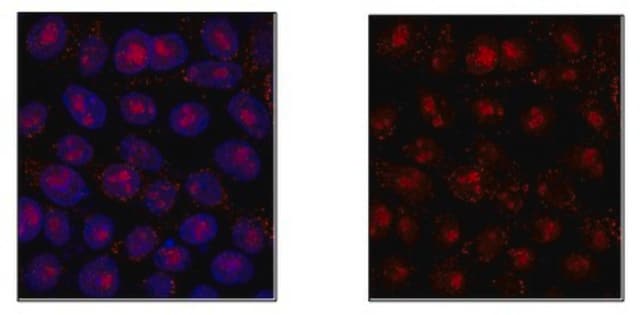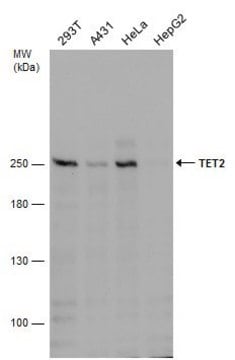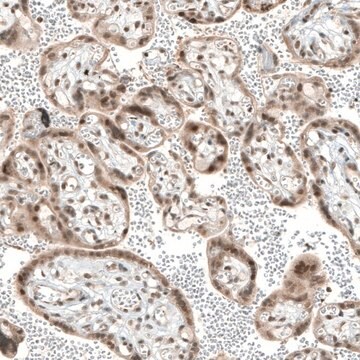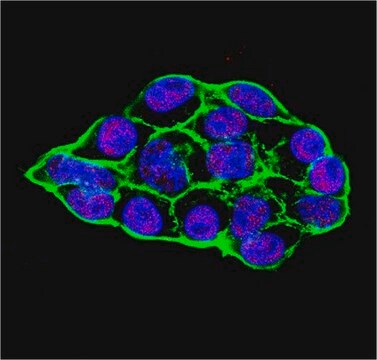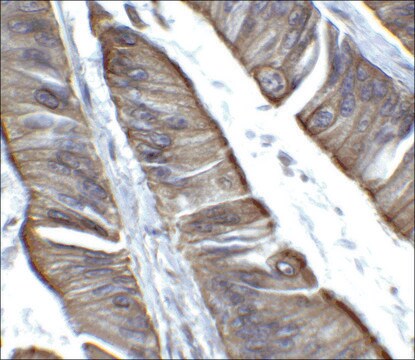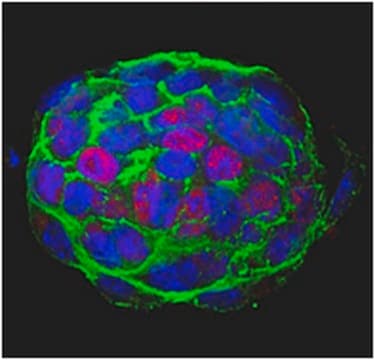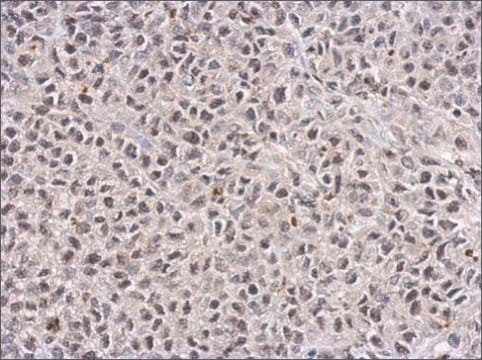MABE462
Anti-TET2 Antibody, clone hT2H 21F11
clone hT2H21F11, from mouse
Synonym(s):
Methylcytosine dioxygenase TET2
About This Item
Recommended Products
biological source
mouse
Quality Level
antibody form
purified immunoglobulin
antibody product type
primary antibodies
clone
hT2H21F11, monoclonal
species reactivity
human, mouse
technique(s)
ChIP: suitable
immunoprecipitation (IP): suitable
western blot: suitable
isotype
IgG1κ
NCBI accession no.
UniProt accession no.
shipped in
wet ice
target post-translational modification
unmodified
Gene Information
human ... TET2(54790)
General description
Specificity
Immunogen
Application
Immunoprecipitation Analysis: 5 µg of a representative lot immunoprecipitated TET2 in 250 µg of HL60 RIPA cell lysate.
Quality
Western Blotting Analysis: 1.0 µg/mL of this antibody detected TET2 in 10 µg of MOLT-4 cell lysate.
Target description
Physical form
Analysis Note
MOLT-4 cell lysate
Other Notes
Not finding the right product?
Try our Product Selector Tool.
recommended
Storage Class Code
12 - Non Combustible Liquids
WGK
WGK 1
Flash Point(F)
Not applicable
Flash Point(C)
Not applicable
Certificates of Analysis (COA)
Search for Certificates of Analysis (COA) by entering the products Lot/Batch Number. Lot and Batch Numbers can be found on a product’s label following the words ‘Lot’ or ‘Batch’.
Already Own This Product?
Find documentation for the products that you have recently purchased in the Document Library.
Our team of scientists has experience in all areas of research including Life Science, Material Science, Chemical Synthesis, Chromatography, Analytical and many others.
Contact Technical Service